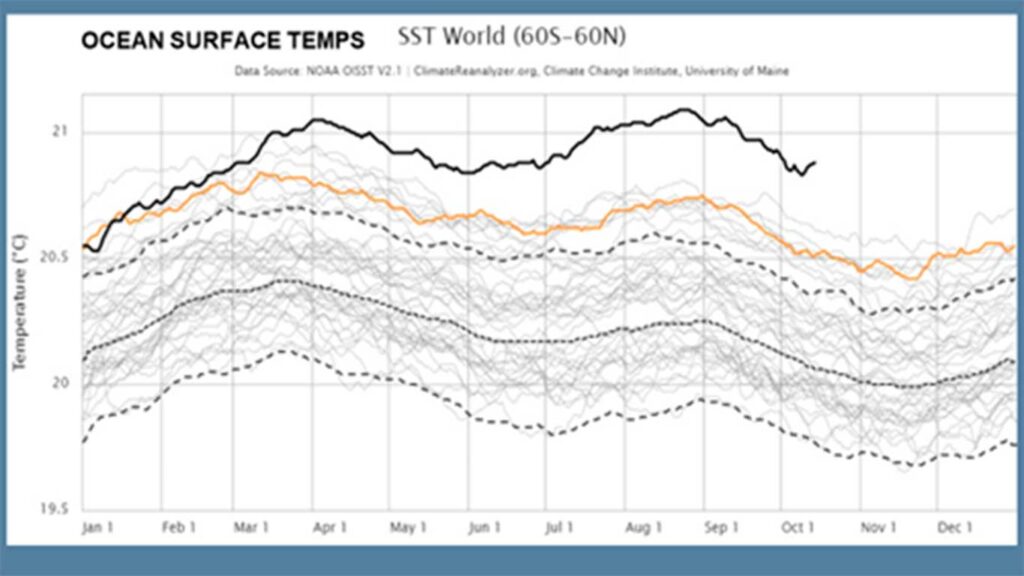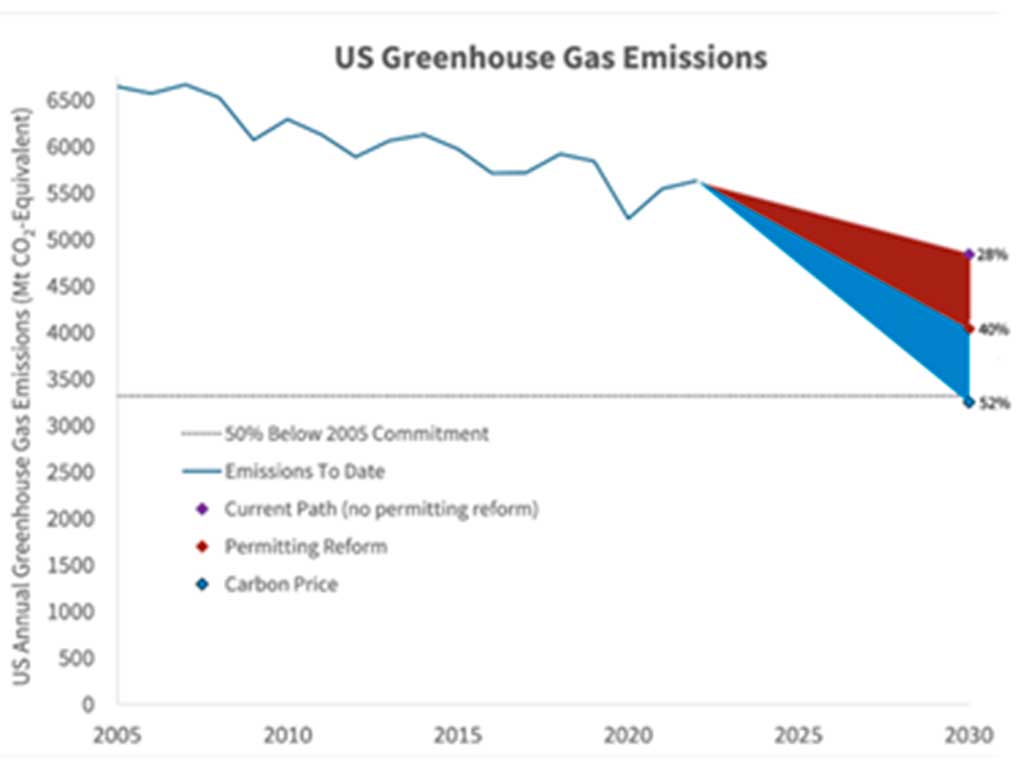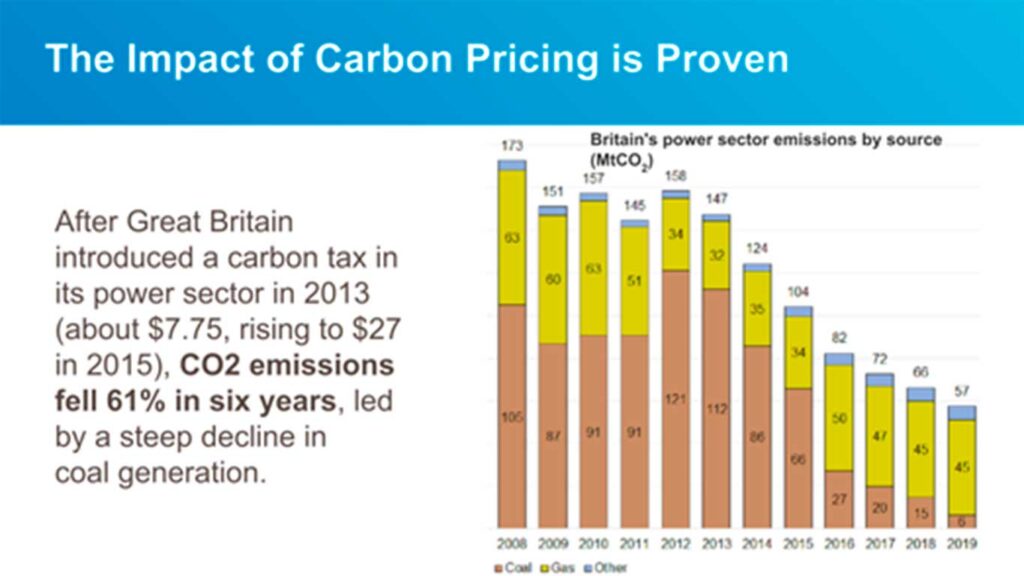WE’RE ALL IN THIS TOGETHER
Is Climate Change Solvable?
By Casey Elizabeth Gilbert & David Kunhardt
While the summer-like temperatures during the last days of October were warm and delightful, we are nervously aware this is another symptom of 2023 being the hottest year on record. Global average air temperatures for both land and ocean are off the charts. Here are the ocean data, from the University of Maine (the dark line represents 2023 temps):

So, is climate change solvable? Yes, it is.
The challenge is daunting, but we should not be discouraged. We can still act with a policy that is equitable and will take us most of the way towards reaching our emissions reduction targets. Although the Inflation Reduction Act and the Bipartisan Infrastructure Act have sped up action and stimulated increased private investment in clean energy beyond what was anticipated, it is not enough.
Fortunately, legislation has been reintroduced to the House of Representatives called the Energy Innovation Act. This bill will tax companies releasing carbon dioxide into the atmosphere and deliver those funds to Americans in the form of direct cash back. In other words, major polluters (such as coal, oil, and gas companies) will pay the government money in proportion to their tons of carbon pollution, and that money will be directly redistributed to Americans. This cash will more than offset increased energy costs during the transition to renewable energy.
The best estimates of the effects of recently passed climate legislation show that we are headed toward reducing US greenhouse gas emissions by about 30% by 2030. With the addition of bipartisan legislation speeding up clean energy permitting reform we can get to about 40% emissions reduction by 2030. If we pass the carbon fee with cash back embodied in the Energy Innovation Act, we can reach the 50% emissions reduction goal specified in the Paris Agreement. The emissions reductions of the different bills are illustrated here:

How do we know the Energy Innovation Act and carbon fee will be effective?
The United Kingdom introduced a carbon tax in 2013. The following six years saw a dramatic reduction in greenhouse gas pollution of 61%, especially from reducing coal.

How can the Energy Innovation Act carbon fee be equitable if it makes fossil fuels more expensive?
Regional economic analysis projects that two-thirds of all Americans, especially those of lower income (who tend to spend less on carbon-intensive products) will come out ahead with the cash from polluters. Those who have larger carbon footprints (generally wealthier people owning more vehicles or flying frequently) will pay more. Still the majority of people will receive more money in cash back than they spend on increased costs. Additionally, a consensus of over 3,600 Democratic, Republican, and non-partisan economists agree that a carbon tax with cash back will be both effective and good for the economy.
How can you help?
Join Citizens Climate Lobby’s efforts to get the Energy Innovation Act (H.R. 5457) supported and passed. Write to your Senators King and Collins, both of whom are on the Senate Climate Solutions Caucus, and your Representative Pingree or Golden.
Additionally, you can sign on to the Carbon Cash-Back 4 ME campaign. Already, more than two dozen Maine communities have passed resolutions asking Congress to take this action. The fight is not over. You can make a huge difference. Together we can pass equitable and effective legislation needed to reach our climate goals.
Casey Elizabeth Gilbert of Portland and David Kunhardt of Scarborough are volunteers with Portland Citizens’ Climate Lobby.
We’re All in this Together is a monthly Climate Justice column provided by the Portland chapter of Citizens’ Climate Lobby.





